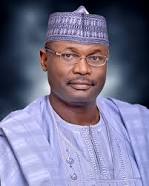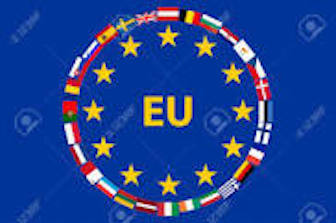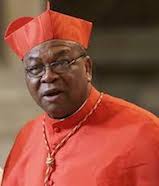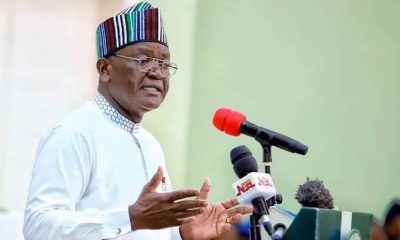OPINION
Four Biggest Losers of 2023 Nigerian General Elections
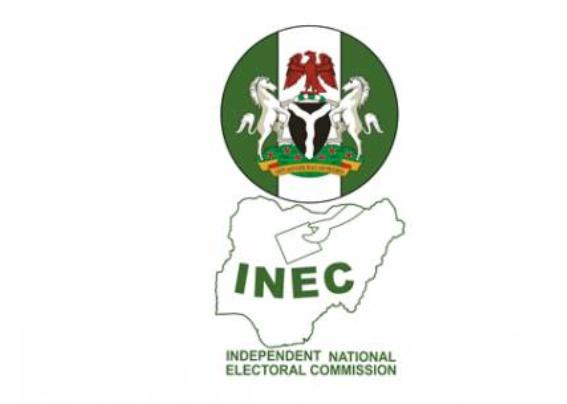
By Michael Owhoko
The real losers of 2023 Nigerian general elections are not the electorates who were deprived of their rights to freely choose candidates of their choice nor the first-timer youths who were disappointed by the Nigerian state, nor the candidates who lost as declared by the Independent National Electoral Commission (INEC).
The biggest losers are President Muhammadu Buhari; INEC Chairman, Professor Mahmood Yakubu; President-elect Bola Ahmed Tinubu; and Nigeria as a political entity. Except for Bola Tinubu who carries the burden of legitimacy arising from the flawed process and the total miniature votes garnered, the others will live with the scars and collective guilt slammed on the country by the ethical deficit in the delivery process of the elections.
With general disenchantment over the conduct of the 2023 Nigerian general elections by over 145,000 national and foreign observers deployed across the country, INEC failed to leave a split opinion on its capacity to conduct free, fair and credible elections, which is a development that will hunt Mahood Yakubu, Muhammadu Buhari and Nigeria for a long time to come. The exercise was not only a horrendous phenomenon on the psyche of Nigerians but a fleeting nightmare.
A consensus negative opinion on the flawed elections by observer groups from the European Union, African Union, Economic Community of West African States (ECOWAS), Commonwealth, The International Republican Institute (IRI), National Democratic Institute (NDI), Joint Election Observation Mission (IEOM), four former African presidents, and Transition Monitoring Group (TMG), is an affirmation of global skepticism about Nigeria’s reputation. They all concluded that the electoral process lacked transparency, which encouraged manipulations and undermined voters’ confidence.
This trust deficit was also highlighted by Chatham House when it declared that INEC had learnt nothing from its past failures. Specifically, it said, “The INEC’s performance and controversies over these results mean that the electoral reforms and lessons declared to have been learned were not fully applied and, as an electoral body, it was significantly less prepared than it claimed.”
As a consequence of these opinions, President Buhari might have missed the opportunity to etch his name in gold over his failure to provide a secure and enabling environment for free, fair and credible elections. As Commander-in-Chief of the Armed Forces, he failed to optimally use his offices, including through the effective deployment of the police, army, DSS, and other security agencies, to protect voters during the elections.
Nigerians were mortified by horrendous images of election violations, and no rationalisation could justify such criminal acts. An election where about 27 persons were killed nationwide over violence, ballot snatching, thuggery, voter suppression, ethnic bigotry, use of tribal gods and deities, even in the presence of security operatives in some instances, can only be a national shame.
Besides, whatever is left of Buhari’s legacy might have been further weakened by the naira redesign and currency swap policy, which brought untold hardship to citizens during period of the elections. Perhaps, the intention of the policy was to eliminate monetary inducement and vote buying, unfortunately, Buhari and the Central Bank Governor, Godwin Emefiele, were outwitted by politicians through the use of extra-constitutional and procedural means to contrive and achieve sinister objectives.
These assertions receded into irrelevance when INEC failed to comply with the Electoral Act and its own guidelines. The Electoral Act, 2022, requires INEC to upload the results of elections of polling units on to its portal as stipulated in Section 60 (5) and Clause 38 of the INEC Regulations and Guidelines.
Specifically, Clause 38 of the INEC Regulations and Guidelines for the Conduct of Elections, 2022 states: “Upon completion of all the Polling Unit voting and results, procedures, the Presiding Officer shall:-(i) Electronically transmit or transfer the result of the Polling Unit direct to the collation system as prescribed by the commission. (ii) Use BVAS to upload a scan of ES8A to INEC Result Viewing Portal (IReV), as prescribed by the commission. (iii) Take the BVAS and the original copy of each of the forms in tamper-evident envelope to the Registration Area/Ward Collation Officer, in the company of security agents. The polling agents may accompany the Presiding Officer to the RA/Ward Collation Centre.”
With non-compliance and deviation from these regulatory provisions, INEC opened the electoral process to manipulation, resulting in the lack of justice and fulfilment for voters.
These violations have exposed the gaps in the capacity of Mahmood Yakubu to deliver on a significant national assignment. This might cast aspersions on his reputation and capabilities. Indeed, this election is a minus for his reputation, as no government or serious organisation would wish to consider him for such important responsibilities in the future.
Unfortunately, the President-elect, Bola Tinubu, is a product of INEC’s flawed process, and this has triggered a legitimacy challenge that is further fueled by the lean number of votes secured at the election, relative to total votes cast. Tinubu polled 8.87 million votes (the least by any presidential candidate since 1999), representing 36.61% of total votes, and 10.08% of all eligible voters. Out of approximately 93 million registered voters, only about 25 million, representing 28.63%, actually turned out to vote.
Implicitly, Bola Tinubu was not only elected by a minority of voters when viewed against 25 million persons that voted. And in a country of over 200 million people, skepticism resulting from INEC’s multiple irregularities are unhelpful to his presidency. Perhaps, this accounts for the absence of national pomp and celebration that would have heralded his victory.
Without prejudice to the outcomes of the current litigation, going forward, Bola Tinubu should activate his social capital to open up channels to influential groups and personalities in the country, including his political rivals, in the effort to legitimise his presidency, and achieve unity the through formation of all-inclusive government.
INEC’s performance has also rubbed off on Nigeria’s image as a corrupt country. Through the foreign observers, perceptions of the international community about Nigeria as a corrupt country might have worsened on account of their opinions over the lack of transparency and operational failures that characterised INEC’s performance.
In the 2022 Transparency International’s (TI) Corruption Perception Index (CPI), Nigeria was ranked 150 out of 180 countries, and also placed as second most corrupt country in West Africa. By INEC’s standard and performance, it has unwittingly further confirmed Nigeria as a corrupt country, and deepened global negative impressions.
Nigeria lost the opportunity to demonstrate before the world its preparedness to be a leading light in Africa and world affairs, using the elections as a spring board to exhibit its leadership potentials and capacity. Hopes for these attainments have, however, been frustrated and shattered by INEC.
Besides, with the world’s attention on Nigeria, as connoted by presence of foreign observers, the country should have used the elections as a public relations tool to strengthen the country’s image through the conduct of free, fair and credible polls under a transparent atmosphere. This would have left foreign observers rattled about Nigeria’s new values and ethical orientation.
It was an event Nigeria should have used to shore-up its dwindling reputation. It is more effective than image-laundering programmes whereby huge amounts of money in foreign currencies are budgeted for public relations and reputation management. With a good image, Nigerians’ dignity and respect would be restored, and this would have largely put an end to discrimination at border posts in foreign countries.
This experience should serve as a lesson on the need to be transparent in the conduct of future elections. Former American president, Jimmy Carter, who was in Nigeria in the past to observe elections, vowed never to observe elections in Nigeria again after his ugly experience of the brazen violation of the electoral process. He was upset with the impunity with which politicians used thuggery to deprive electorates from freely voting for candidates of their choice.
It is hoped that Nigeria will not allow a repeat of this ugly experience. It is time to make political offices unattractive to discourage desperation, which is the underpinning motive for all these electoral atrocities. The electoral body should be reformed and repositioned with people of integrity as drivers aimed at restoring electoral integrity.
Mike Owhoko, a Lagos-based journalist and author, can be reached at www.mikeowhoko.com.
OPINION
A silent Emergency: Soaring Costs of Diabetes Care Spark Alarm

By Folasade Akpan
For Mrs Schola Effiong, a 58-year-old confidential secretary in Calabar, managing diabetes in today’s economy feels like “climbing a hill that only gets steeper”.
Diagnosed in 2009, she said her monthly expenditure on insulin, tablets, laboratory tests and monitoring supplies now exceeds ₦150,000.
“You cannot stop taking the drugs, yet the cost keeps going up.
“Sometimes I do not have the money to buy some of them at the same time,” she said.
Her struggle mirrors the experiences of thousands of Nigerians at a time when experts warn that diabetes is becoming a major public health concern.
According to a 2018 national meta-analysis by Uloko et al.
, titled “Prevalence and Risk Factors for Diabetes Mellitus in Nigeria: A Systematic Review and Meta-Analysis”, Nigeria’s diabetes prevalence stands at 5.7 per cent, representing 11.2 million adults.The authors defined diabetes mellitus as a metabolic disorder of chronic hyperglycaemia caused by absolute or relative insulin deficiency and associated with disturbances in carbohydrate, protein and fat metabolism.
The study, which pooled data from numerous research works across the country, revealed wide regional disparities.
The prevalence rate was 3.0 per cent in the North-West, 5.9 per cent in the North-East, and 3.8 per cent in the North-Central, respectively.
The rates were higher in the southern part of the country: 5.5 per cent in the South-West, 4.6 per cent in the South-East, and 9.8 per cent in the South-South.
Experts say these patterns reflect changing lifestyles, rapid urbanisation and limited access to routine screening.
However, for many patients, statistics tell only a fraction of the real story.
Mr Offum Akung, a 57-year-old teacher in Cross River, said he had to ration his drugs because prices kept rising faster than his salary.
“I spend over ₦40,000 a month and still cannot buy everything on my prescription.
“I rely mostly on Glucophage now; when money allows, I add Neurovite Forte; diabetes management has become more difficult than the disease itself,” he said.
He appealed for government intervention, saying many patients were already “giving up”.
The Second Vice-President of the Diabetes Association of Nigeria, Mr Bernard Enyia, said the economic situation had pushed many Nigerians with diabetes into dangerous coping methods.
He said that he once managed his condition with about ₦70,000 monthly, but currently spends more than ₦180,000.
“Insulin has become something you pray for, while some people are sharing doses or skipping injections.
“Once you break treatment, the complications come quickly.”
Enyia, who lost his job as a health worker in 2017 due to frequent hospital visits, described the emotional toll as immense.
“It affects your finances, your social life, your marriage — everything. Many Nigerians with diabetes are quietly drowning,” he said.
Globally, concerns are also rising.
The World Health Organisation (WHO) estimates that more than 24 million adults in Africa are living with diabetes, a figure projected to rise to 60 million by 2050.
Marking World Diabetes Day 2025, WHO Regional Director for Africa, Prof. Mohamed Janabi, warned that rising obesity, lifestyle changes and weak health systems were fueling an “unprecedented wave of diabetes” across the continent.
He urged governments to prioritise access to affordable insulin, diagnostics and long-term care.
More so, pharmacists say they are witnessing the crisis firsthand.
The Senior Vice-President, Advantage Health Africa, Mr Adewale Oladigbolu, said many patients were no longer able to maintain regular medication schedules.
“People buy drugs today and skip them tomorrow because they do not have money.
“With non-adherence, they never reach therapeutic goals.”
Oladigbolu, a Fellow of the Pharmaceutical Society of Nigeria, said that locally manufactured metformin remained in high demand due to affordability, but insulin-dependent patients faced the harshest burden.
He stressed that diabetes care extended far beyond drugs.
“You need glucometers, strips, blood pressure monitors and regular tests.
“In countries where insurance work, patients do not think about the cost; in Nigeria, they pay for everything out of pocket,” he said.
He called for diabetes care to be covered under health insurance to reduce the financial burden on patients.
President of the Diabetes Association of Nigeria, Prof. Ejiofor Ugwu, described the rising cost of treatment as “a national crisis hiding in plain sight.
He said insulin, which sold for about ₦3,500 four years ago, presently costs ₦18,000 to ₦22,000 per vial.
“Test strips that were ₦2,000 now sell for ₦14,000, while glucometers have risen from ₦5,000 to over ₦25,000.
“On average, a patient now needs between ₦100,000 and ₦120,000 every month. Imagine earning ₦50,000 and being asked to spend twice that on one illness.”
He warned that between half and two-thirds of Nigerians with diabetes remain undiagnosed.
“We are seeing more kidney failure, more limb amputations, more blindness.
“These are late presentations caused by delayed or inconsistent treatment.”
Ugwu urged the Federal Government to urgently subsidise essential anti-diabetic medications and remove taxes on their importation.
“Most of these drugs are produced outside the country.
“Once you add import duties and other charges, prices become unbearable; subsidies and tax waivers could drop costs by at least 30 per cent,” he said.
He also called for expansion of the National Health Insurance Authority (NHIA) to cover a wider range of anti-diabetic medicines, glucose meters and strips — none of which are currently covered.
For many Nigerians, however, the struggle continues daily.
Across households, clinics and pharmacies, the message is the same: as Nigeria’s diabetes prevalence rises and treatment costs soar, more patients are slipping through the cracks — some silently, others painfully — while waiting for meaningful intervention.
In all, stakeholders say diabetes is a national emergency; people are dying quietly because they cannot afford medicine; hence the urgent need for relevant authorities to make anti-diabetic medications accessible and affordable.(NAN)
| ReplyReply allForwardAdd reaction |
OPINION
Is Community Parenting Still Relevant?

By Dorcas Jonah
In the Nigerian culture, extended families and communities play a crucial role in care-giving, instilling values, and supporting the development of children.
This cultural heritage of community parenting emphasises shared responsibility in raising children.
But in contemporary Nigeria, this age-long practice is facing enormous challenges due to modernisation.
In scrutinising this trend, some parents are of the view that community parenting helps in instilling morals and curbing social vices among children and youths, while others believe it is outdated.
Some parents are of the belief that their children are their responsibility; so they do not tolerate others correcting their children.
By contrast, others say that community parenting, when done with good intentions, can help raise a better society.
Mr Peterson Bangyi, a community leader in Dutse Makaranta, said that community parenting was the bedrock of raising a child.
He said the adage: “it takes a village to raise a child”, remained a powerful principle in contemporary society.
According to him, by Nigeria’s cultural norms and values, a child is owned by everyone; therefore, the grandparents, aunts, uncles, and neighbours actively contribute to raising children.
“This approach fosters a sense of belonging and ensures children grow up with diverse role models.”
Bangyi said that the extended families practiced by more communities were the backbone of parenting.
“But modernisation has taken away this practice as most families do not want people to come close to their children,’’ he said.
Mrs Monica Umeh, a mother of two, emphasising on the importance of community parenting, said that it played significant role in shaping her upbringing as a child and young adult.
Umeh advised that when correcting other people’s children, it is essential to do so with love and good intentions, without any form of bitterness.
“I am a strong advocate of community parenting as long as it is done with love and good intentions.
“I believe no parent can single-handedly raise a child without the support of others,’’ he said.
Mr Temitope Awoyemi, a lecturer, said that community parenting was crucial and could not be over-emphasised.
He said that community parenting helped society in inculcating strong moral values in children and youths, adding that modern life could be isolating for parents.
Awoyemi said that strong community support networks had been shown to lower parental stress levels and promote a more optimistic approach to raising children.
“It also ensures that a child receives guidance and correction from various adults, providing a broader, more consistent moral and social baseline that might be missed by parents who are busy with work.
“Community parenting encourages collaborative, interdisciplinary support from various community members and agencies in addressing a child’s developmental needs comprehensively.
“It focuses on prevention of long-term problems and celebrating individual strengths,’’ he said.
Awoyemi said that as the society continued to evolve, community parenting could adapt to ensure children benefitted from both cultural roots and contemporary innovations.
Mr Fortune Ubong, a cultural enthusiast, attributed the increasing crime rate in Nigeria to lack of community parenting that had extended to schools, and government institutions.
According to him, community parenting remains the foundation of every child’s moral upbringing.
“Most parents are now focused on earning a living and improving their lifestyle, in the process abandoning their primary duty of molding and guiding their children; this is where community parenting plays a greater role,” he said.
However, Mrs Joy Okezia, a businesswoman, said that given the recent developments in the country, correcting a child should be the sole responsibility of their parents.
Okezia said that she preferred to correct her children herself as she knew them better than anyone else.
She also noted that with the rising insecurity in the country, intervening to correct a child could pose a significant risk to the person.
Mrs Ijeoma Osita, a civil servant, also shared Okezia’s view, saying that a child’s behaviour was shaped by their family upbringing.
She said that if a child was not taught to love and respect others at home, an outsider would have little impact in correcting such a child.
Osita emphasised that parents should in still in their children the values of love and respect regardless of their status or background.
According to her, a child brought up with good values is less likely to misbehave well.
She cited the Holy Bible, saying, that says: “Train up a child in the way they should go, and when they are old, they will not depart from it’’.
Osita said that community parenting remained a vital aspect of Nigerian culture, promoting shared responsibility and resilience among families.
He opined that while modernisation posed challenges, blending traditional practices with modern strategies offered a promising path forward.
Observers say robust community connections are linked to better social-emotional development, academic achievement, and overall well-being for children.
They say that in modern society, amidst the digital world, economic instability, and busy work schedules, parents face pressures, making community support systems fundamental.
All in all, stakeholders are of the view that combining traditional community parenting with modern childcare – integrating technology, play-based learning, and skill acquisition – will produce well-rounded children.(NAN)
FEATURES
Victor Okoli: The Young Nigerian Tech Founder Building Digital Bridge Between Africa and America

Victor Chukwunonso Okoli, founder of Vnox Technology Inc. (USA) and Vnox Limited (Nigeria), is steadily emerging as one of the most promising new voices in global travel-tech. His mission is clear: bridge the technological gap between Africa and the United States, redefine global travel systems, and empower a new generation of skilled youths through innovation-driven opportunities.
In a statement issued in Onitsha, Anambra State, by Vnox Limited (Nigeria), the company emphasized Okoli’s growing influence as a Nigerian international graduate student contributing meaningfully to U.
S. innovation. His rising travel-technology platform, FlyVnox, currently valued at an estimated $1.7 million, is positioning itself as a competitive player in the global travel ecosystem.Okoli explained that Vnox Technology was founded to “train, empower more youths, create global employment opportunities, and drive business growth through our coming B2B portal inside the FlyVnox app.” The platform’s new B2B system aims to support travel agencies, entrepreneurs, and businesses across Africa and the diaspora—giving them access to modern tools, previously inaccessible technologies, and global opportunities.
Several young men and women are already employed under the expanding Vnox group, with more expected to join as the brand grows internationally.
Born and raised in Eastern Nigeria, Okoli’s early life exposed him to the realities and frustrations faced by international travelers and diaspora communities. After moving to the United States for graduate studies, he transformed those experiences into a bold technological vision—building systems that connect continents and create seamless mobility for users worldwide.
At the center of that vision is the FlyVnox app, a modern airline-ticketing platform built with global users in mind. Combining American engineering precision with African mobility realities, FlyVnox offers international flight search, multi-currency support, secure payments, transparent pricing, and a clean, intuitive interface.
Beyond FlyVnox, Okoli has built a growing tech ecosystem under Vnox Technology Inc., which oversees several innovative ventures, including: Vnox TravelTech Solutions LLC (FlyVnox App), VnoxPay (fintech), VnoxShop / Zyrlia (e-commerce)
VnoxID / Nexora (digital identity and smart business card solutions)
Vnox Limited (Nigeria) anchors African operations, media services, and talent development—ensuring the brand remains rooted in its home continent even as it grows globally.
Okoli’s work has broad significance for both Africa and the United States. He represents the powerful impact of immigrant entrepreneurship on global competitiveness—creating new jobs, driving innovation, strengthening U.S.–Africa commercial ties, and contributing to the development of practical, scalable technologies.
The statement concludes that Vnox Technology is a brand to watch. As FlyVnox gains international traction and the Vnox group expands its footprint, Victor Okoli stands as a symbol of a rising generation: African-born, globally minded, and building technologies that connect and serve the world.

